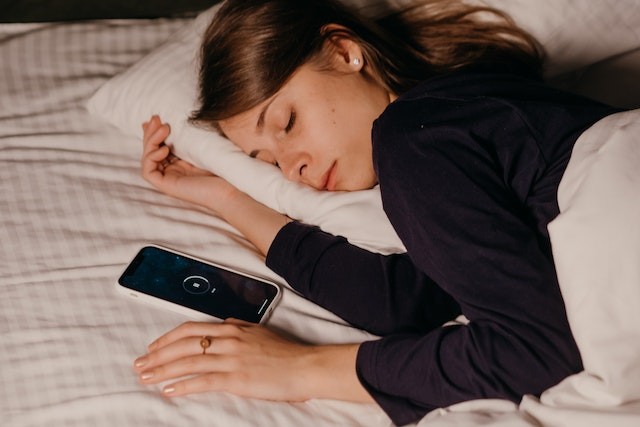
What's The Healthiest Sleeping Position?
Some struggle to enjoy a good night's sleep due to their sleeping position. However, finding the healthiest sleeping position is problematic since it may depend on your condition.
What's The Healthiest Sleeping Position?
Sleeping on your left side rather than your right side may have some advantages for your health. Additionally, there are times when laying on your back or stomach may be healthier for you.
Here are some benefits of the various sleeping positions per Sleep Foundation.
Sleeping on your side
Men spend more time on their sides each night than women do, with almost 60% of people sleeping on their sides. We divided our evenings equally between all positions as children, but as adults, the outlet noted that side sleeping becomes a definite preference. Because our spine's flexibility declines with age, side sleeping may be more comfortable for senior citizens.
The advantages of sleeping on your side are numerous. When supported by pillows, it encourages proper spinal alignment and is the sleeping position least likely to cause back pain. Additionally, sleeping on your side may lessen snoring and heartburn, making it especially advantageous for pregnant women, people with acid reflux back pain who snore or have sleep, and older individuals.
Sleeping on the left is recommended for pregnant women and those with acid reflux or gastroesophageal reflux disease (GERD) because sleeping on the right may increase pressure on the internal organs.
Sleeping on your back
With several advantages that rival resting on one's side, lying on one's back is the second most common sleeping posture. Maintaining spinal alignment and appropriately distributing your body weight when you're flat on your back is simple, which helps avoid any potential neck or back pain. If you hold yourself upright while you sleep on your back, you may also experience relief from allergies or stuffy nasal congestion.
The back sleeping position is also suitable for our skin. Your face isn't being pressed against a pillow or mattress, which would cause wrinkles. Lying on your back is beneficial for those people with lumbar spinal pain, worried about wrinkles, neck pain, and nasal congestion.
This is great for those with neck pain because it prevents misalignment that can occur in the side or stomach position. Also, if you are coping with a stuffy nose, you can use pillows to prop up your upper back for an upright position without collapsing the spine.
Sleeping on your stomach
This is the most unpopular sleeping position. Researchers say we spend less than 10% of the night in this position.
This position can help relieve snoring by opening up the airway. However, your ribs have to work against gravity, forcing you to use more energy, thereby making your sleep less restful.
ALSO READ: What Is Wake Therapy? Sleep Deprivation Boosts Mood Among People With Depression
Tips to Choose the Best Sleep Position
According to Rachel Salas, M.D., an associate professor of neurology at Johns Hopkins Medicine, some sleeping positions are better than others. So, you have to pick the position that is best for you.
She suggests considering several factors before sleeping, like the following conditions - back and neck pain, snoring and sleep apnea, reflux and heartburn, and appearance.
Back sleep is recommended for those with back and neck pain and those concerned with wrinkles. Meanwhile, side sleep or lying on the stomach is best for those who snore or have sleep apnea. Sleeping on the left side is the best option for those with reflux and heartburn.
She also suggested optimizing the bedroom for a good night's sleep, meaning keeping the sheets clean and the blinds closed. According to her, keeping the bed's position away from distractions like blinking lights from routers or other equipment is best.
Salas noted that you can work on your sleeping environment to make your slumber sweeter.
RELATED ARTICLE: How Do 7 to 9 Hours of Sleep Help Improve Mental Health?
Check out more news and information on Sleep in Science Times.














